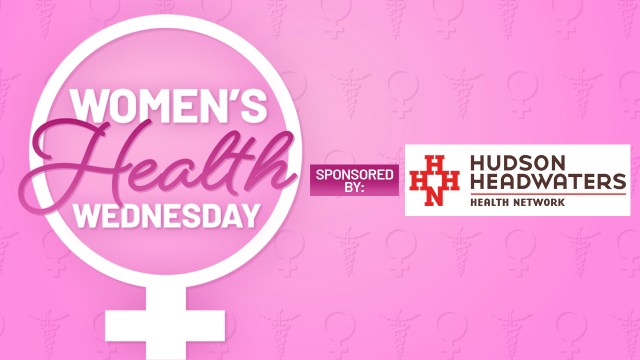
In an unprecedented time in the reproductive healthcare landscape, one new Albuquerque abortion provider called providing abortions in the U.S. human rights work.
Amy Hagstrom Miller, founder and chief executive officer for Whole Women’s Health, talked to NM Political Report at length about what it took to relocate from Texas, where the nonprofit organization operated clinics in four cities, to Albuquerque last month.
Whole Women’s Health, which previously ran clinics in the Texas cities of Austin, Fort Worth, McAllen and McKinney, opened its first clinic in Albuquerque near the airport on March 23.
Whole Women’s Health is largely associated with Texas because it launched a lawsuit in 2013 to litigate a state TRAP [Targeted Restrictions on Abortion Providers] law requiring abortion clinics to have admitting privileges at a hospital within 30 miles of the clinic.
In 2016 the U.S. Supreme Court heard Whole Women’s Health v. Hellerstedt and opined that the state restriction was medically unnecessary and ruled in favor of Whole Women’s Health. In addition to Texas, the provider also operates clinics in Virginia, Maryland, Minnesota, Indiana and now, for the first time, New Mexico.
Whole Women’s Health is part of a growing trend of abortion providers opening or relocating to New Mexico, which is now considered a safe haven state for abortion rights. Governor Michelle Lujan Grisham’s pledge of $10 million to help open a full-spectrum reproductive healthcare clinic in Las Cruces was part of the capital outlay bill, in this past legislative session.
But the road was long to get here, Hagstrom Miller said.
“It’s been a really challenging year,” she said.“We have clinics or programs in six states so we’re not only in Texas. We’ve been there for 20 years, it’s a big part of who we’ve been. Having to lose all four clinics in Texas was really devastating after Roe. It took time to recover and build resources to move to New Mexico,” she said.
Despite the fact that New Mexico is now, in the post-Roe landscape, considered a safe-haven abortion rights state, Hagstrom Miller faced challenges from anti-abortion foes when she first considered the move. Some national media outlets reported that Whole Women’s Health was considering relocating to Hobbs or Clovis last year after the court overturned Roe v. Wade. Within six months, both towns passed anti-abortion ordinances to deter an abortion provider from setting up a clinic. Now, nine months since Roe fell, the city of Eunice and Lea and Roosevelt counties have also passed similar anti-abortion ordinances.
Most of those ordinances have been challenged by New Mexico Attorney General Raúl Torrez in a filing he made earlier in the year at the New Mexico Supreme Court. The New Mexico Legislature passed the Reproductive and Gender-Affirming Healthcare Act.
Signed by Lujan Grisham, the legislation prohibits public bodies from discriminating against abortion or gender-affirming care. Bill sponsor Linda Serrato, D-Santa Fe, previously told NM Political Report the point of the bill was to end what she called the “patchwork” of abortion regulation within the state.
Shortly after Lujan Grisham signed the bill, Torrez filed a separate request with the New Mexico Supreme Court to consider the anti-abortion ordinances in most of the locales in eastern New Mexico in light of the new law. The court temporarily blocked the anti-abortion ordinances in late March.
Hagstrom Miller said Whole Women’s Health was also watching rhetoric coming from individuals in Texas who were calling for surveillance of women crossing the state line into New Mexico. She said the clinic also considered Roswell and Carlsbad but decided the safest place for both staff and patients would be to set up a clinic in Albuquerque near the airport.
“I saw research from the Texas Policy Evaluation Project that if someone can figure out how to travel 150 miles for an abortion, they can figure out how to travel 500 miles. The first 150 miles is the barrier. If you’re dealing with poverty, you can’t go that 150 miles,” she said.
She called the situation “super depressing” and said “all of this is unprecedented.”
“It was pretty hard to get data to support what we should do,” she said.
Hagstrom Miller said all of the approximately 50 bookings for appointments have come from out-of-state patients and a “high percentage are traveling from far away.”
She said that the clinic welcomes patients from New Mexico but she thinks many individuals who live in the state are simply not aware of Whole Women’s presence yet. She said that because the wait times at New Mexico abortion clinics have lengthened due to the overwhelming volume of patients coming from Texas and other anti-abortion states, Whole Women’s Health is filling a real need.
Hagstrom Miller said that in response to the six-week Texas ban in 2021 and the fall of Roe in 2022, the clinic has had to adapt into more than just an abortion provider to help pregnant individuals navigate the anti-abortion landscape. She said Whole Women’s Health started a program called Wayfinder that helps people who are in an abortion-hostile state. That could mean booking an airline ticket, helping with a gas card or hotel reservations.
“It felt like we were a travel agency on some levels,” she said.
She said the provider spent more than $500,000 in the last nine months, after Texas banned abortion completely in response to the fall of Roe, helping individuals pay for an abortion.
“Our team had a debate, ‘can we slow down now?’ Maybe we can go back to just being a provider. That will be a welcome evolution for us,” she said.
But she added the clinic took on that additional work conscientiously.
And that was in addition to the work required to relocate to Albuquerque. Hagstrom Miller said she tried to pursue federal avenues for grants or other forms of support but could find none. She started a fundraising portal on a social media platform to ask for individual donations. She said in terms of challenges the organization faced, financial hardship was “a big one.”
She had to close four clinics, buy out the leases from two landlords, sell two other buildings, move everything to storage, find property in Albuquerque, purchase new security equipment, undergo remodeling, then move to Albuquerque in addition to hiring staff and relocating.
The Reproductive Health Provider Protections Act protects abortion and gender-affirming care providers who may be licensed in one state but also licensed in New Mexico, from the reach of litigation in states hostile to abortion or gender-affirming care. Hagstrom Miller said she is “really glad to see that.”
Hagstrom Miller called it “really critical to protect patients, the providers and clinic staff.”
“I think that’s really important,” she said.
When asked how she and the clinic keep going in the face of so much difficulty, Hagstrom Miller said she entered this work more than 30 years ago and that she comes at it from a human rights perspective.
“The stigma and shame are manufactured. All of that stuff has driven me to the work. I know it’s not normal,” she said.
Hagstrom Miller said abortion providers “don’t get to talk about regular old healthcare stuff.”
“Everybody looks at us through the lens of stigma. The arc of our work is long. The goal is to eradicate abortion stigma in this country. That part of it is the big work,” she said.







